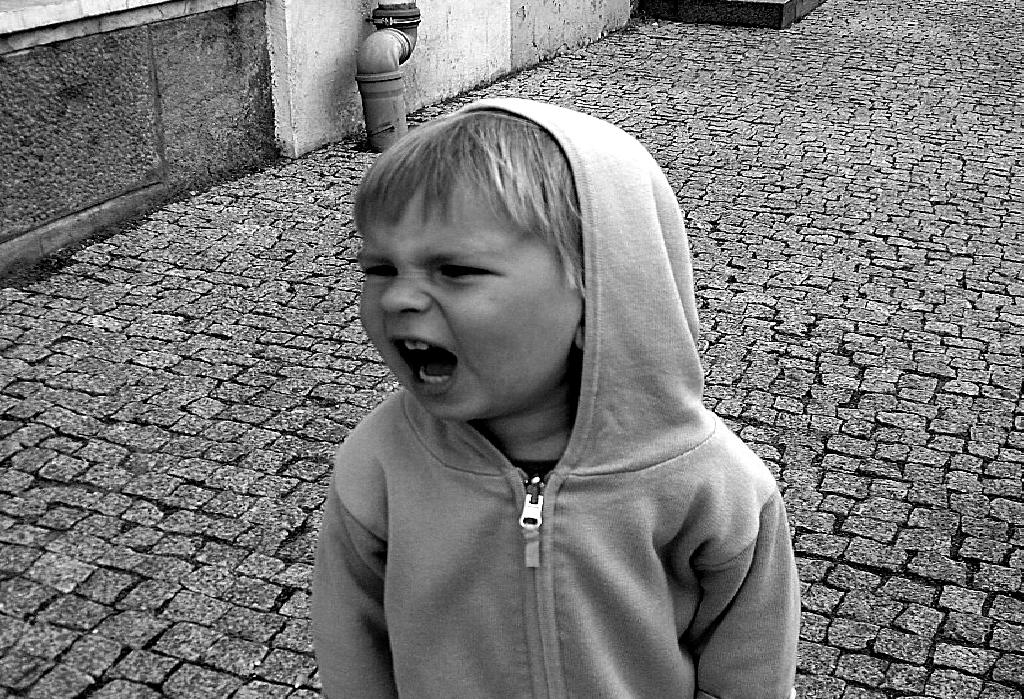Good girl! Good boy! Good job!
Are those phrases a familiar part of your parenting repertoire?
As much as we believe we are being supportive and loving of our children when we use these phrases, we actually might be raising a junkie.
That’s right. You heard me.
A praise junkie.
Just as addicts crave the rush from the stimulants flowing through their system, a child who becomes hooked on those seemingly innocent words is constantly on the lookout for his next high: his temporarily elevated sense of self-worth as dealt out by the parent through praise.
“But wait!” you are saying (I can feel your indignation from here). I am a good parent, one who cares about my children’s self-esteem. Are you saying I should never let them know they are doing well? And how dare you compare my gift of praise to the addictive drugs of a back alley dealer!
Stay with me here, ladies, please, for I used to feel the same way.
I am a huge fan of showing my kids how thrilled I am with their progress, achievements and limited successes, and letting them know I love them unconditionally (even when I don’t like their behavior very much…), but I have learned that there is a big difference between how a child responds to praise versus how they flourish with encouragement.
Praise is an external motivator. It is made up of words that judge, that tell the child how they should feel about what they are doing:
You are the best in the class.
You sing better than everyone on American Idol.
You are the star of the team.
These words will foster behavior in children so they are “less likely to take risks, are highly sensitive to failure and are more likely to give up when faced with a challenge”, according to a Good Morning America story featuring a study on praise conducted by developmental psychologist Carol Dweck.
GMA reported the following:
For the study, researchers divided 128 fifth-graders into groups and gave them a simple IQ test. One group was told it did really well and must be very smart. The other group was told it did really well and must have worked hard. One group was praised for intelligence, the other for effort.
Asked if they wanted to take a slightly harder test, the kids praised for their intelligence were reluctant. Of those praised for their effort, however, 90 percent were eager for a more challenging task. And on a final test the effort group performed significantly better than the group praised for its intelligence.
Another story on praise-this one from The Counselor Mom-highlights additional unintentional consequences:
Well, the downside of using it too much is that a child learns they need to win affection from parents/teachers/adults, as it teaches children to please others, and they soon learn to expect a reward.
Praise often comes with a judgment such as ‘best’ at this or ‘highest’ at that and can encourage more competition. It also can create fear of failure, selfishness, and dependence. They start to doubt themselves and the person praising them. And it can create little snobs who feel entitled and expect compliments and things to always go their way
On the other hand, encouragement is the internal motivator because it taps into the child’s recognition of his effort. So how do we encourage?
Alfie Kohn, author of “5 Reasons to Stop Saying “Good job!”, gives three, easy to follow, brief guidelines: say nothing, say what you saw, and talk less, ask more.
For instance, if your child was learning to make their lunch for school, you could offer some encouragement like this:
Say nothing: Personally, I wouldn’t use this option in the beginning stages, because you want to recognize the child taking the initiative and responsibility, since you want them to want to make their own lunch.
Say what you saw: “It looks like you put a lot of thought into what you will be eating today.”
Kohn does note that “if a child does something caring or generous, you might gently draw his attention to the effect of his action on the other person: “Look at Abigail’s face! She seems pretty happy now that you gave her some of your snack.” This is completely different from praise, where the emphasis is on how you feel about her sharing.”
Talk less, ask more: “I see foods you really like in here. Which are you looking forward to the most? Or: “How did you choose what you wanted to pack?”
The difference between the two is in the way children respond.
When we praise, eventually the children will only do something for the praise, not because it is the right or necessary road forward. They will also be hesitant to take risks, because they believe they have already reached a peak of their intelligence and/or capabilities, or they fear that the praise will stop if they don’t perform to our standards.
When we encourage, we give them the opportunity to take pride in their effort, and then feel the excitement and joy of taking that step forward, which builds a foundation of learning, risk taking, failing and taking it in stride, and the thrill and satisfaction of accomplishment.
So, is all praise bad? Of course not. Like anything, in moderation it is fine.
However, if you are looking for a better way to give feedback to your sons and daughters, give encouragement a whirl. It does require a fresh perspective on your part, but the time and effort are absolutely worth it.
Here are links to the full articles I have quoted:
GMA: Why Praise Can be Bad for Kids
The Counselor Mom: Praise vs Encouragement
Alfie Kohn: 5 Reasons to Stop Saying “Good job!”
Sharing today on No Ordinary Blog Hop
Please share how you encourage, or what happened when you switched from praise to encouragement.




Hi Kim,
What an important distinction you make here. It is powerful.
Just imagine two kids growing into adulthood… One craving praise, (which can manifest into neediness and rebellion), the other, thriving on encouragement, (which can manifest into significant personal growth and big accomplishments).
Thanks for your thoughts. What an incredibly different adulthood each child will experience, and those differences will resonate through their personal and work relationships. Fortunately, it is never too late to learn new habits!
What a wonderful post! There us a much needed distinction between praise and encouragement that we could all use. So glad you listed this hidden gem

Marty recently posted…Housekeeping 101